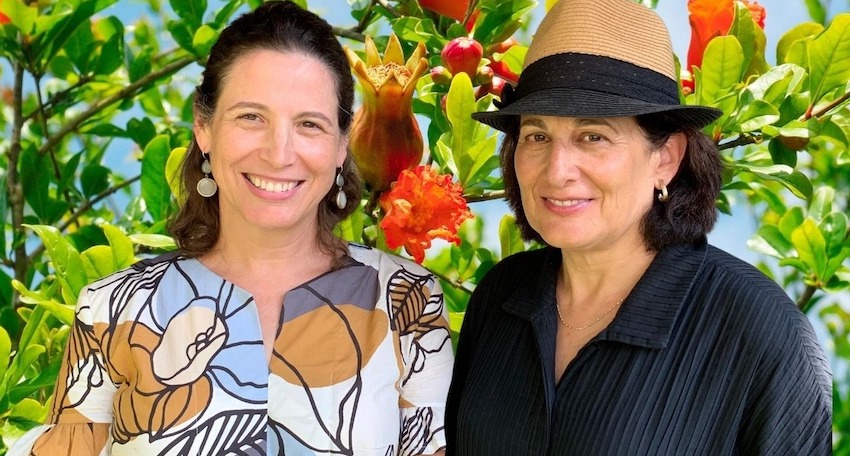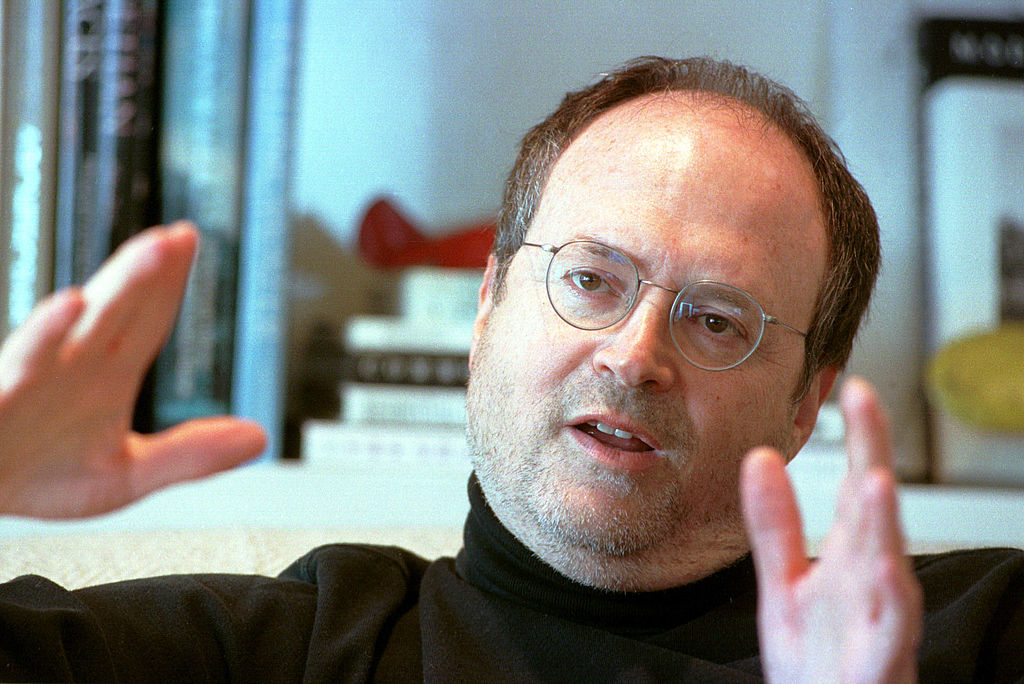Your Daily Phil: Network of Jewish Human Services Agencies taps new VP + Israeli crowd-funding platform helps support individuals in need
Good Tuesday morning!
The first person to hold the position of vice president of strategy and partnerships at the 140-member Network of Jewish Human Service Agencies (NJHSA) will start work next week, Reuben Rotman, NJHSA’s CEO, told eJewishPhilanthropy.
Basha Silverman, who comes to the job following a five-year tenure as the CEO of Jewish Family Services in Delaware, will oversee and expand the network’s Center for Innovation and Research, created to help member agencies think creatively to solve especially difficult problems.
The center’s work will include exploring the use of new technology, such as Uniper, an interactive digital platform that eases isolation and facilitates independence among the elderly, or robots that serve a similar function. However, the center will resist the temptation to conflate innovation and technology, Rotman said: “Innovation isn’t always about the latest gadget. It’s about how to find a solution to a challenge.”
Daily Giving, an Orthodox giving circle that makes a grant every day on a rotating basis to a roster of charities, has expanded its beneficiary organizations from 42 to 57, Jonathan Donath, the founder of the organization, told eJewishPhilanthropy.
New groups include Kids Kicking Cancer, a provider of therapeutic martial arts classes and hospital visits; Meaningful Minute, a website that curates Jewish content; and Russian-American Jewish Experience (RAJE), which connects young Russian Jews with classes, Shabbat celebrations and Israel trips.
CONNECT DIRECT
A crowdfunding organization that has the recipient’s back


Courtesy
“Shiraz,” 25, and her family have long struggled financially. She is taking a bookkeeping course while working at a supermarket, but doesn’t earn enough to cover her expenses. Ten Gav, an Israeli crowdfunding platform that enables donors to give directly to individuals who have a specific need, is trying to help her, Naomi Brounstein, the platform’s co-founder, told eJewishPhilanthropy’s Helen Chernikoff.
A serious pun: “Everyone acknowledges that no government system can provide everyone with beds and refrigerators,” said Brounstein. “They have a budget line for material assistance, but it’s limited.” As of August 16, Ten Gav had received $476 toward its total cost of $1,032 for Shiraz’s coursework. (The Hebrew-language version of the site gives the amounts in shekels.) In addition to Shiraz, the website shares the stories of 14 other individuals with similar needs. The name of the organization is a play on words, Brounstein said. “Ten” in Hebrew means “give,” while “gav” means both a person’s back and, in Hebrew slang, connotes paying for someone or helping them get by. In English, “give back” means to help individuals in need. Ten Gav has helped 2,530 Israeli families, raising NIS 6.7 million, or about $2 million.
Trust and verify: Ten Gav changes the names of the people it helps to protect their privacy, but each case includes the name of the social worker who referred the individual to Ten Gav, and the case number — for Shiraz’s tuition, 200106. Tehila Fridman, who works in the department of social services in Kiryat Arba, submitted a request on Shiraz’s behalf to the organization. “The best decision we made was to work through the social services network,” Brounstein said. “People need that trust.” Ten Gav works with 48 agencies that can each submit up to seven cases a month, and the organization selects from the pool in order to highlight a variety of needs that will appeal to a broad range of donors. If, within about a month, Shiraz’s or any other case hasn’t received sufficient donations from the public, Ten Gav will close it and draw on other funds, supplied by donors who make general donations, to pay the balance, Brounstein said.
Read the full article here.
HOW WE TEACH
How can collective work shed light on Jewish pedagogies and benefit Jewish education for years to come?


Courtesy
“All too often Jewish educational leadership is reactive in our orientation to vision setting and the construction of pedagogical frameworks,” writes Adam Eilath, head of school at Wornick Jewish Day School in an opinion piece for eJewishPhilanthropy.
Jewish lens: “What if instead of using the Jewish tradition to help ‘ground us’ in the secular world around us, we developed pedagogies that originated from Jewish ritual and text whose methods were also Jewish? For example, what if instead of using ‘Hanoch Lenaar Al Pi Darco/Educate each child according to their own way’ from Proverbsas a tagline to support differentiated instruction, we gathered all of the texts, mitzvot and rituals that align with differentiation and contemplated what differentiation could actually look like through a Jewish lens.”
Developing pedagogies: “Over the past year, twelve educators gathered regularly to develop ‘Jewish Pedagogies’ through a remarkable initiative facilitated by M²: The Institute for Experiential Education and supported by Lippman Kanfer Foundation for Living Torah and the Jim Joseph Foundation. We were given the space to leave the day to day challenges of our individual professional settings. We were given permission to tinker, contemplate and ideate. Starting slowly, we ideated, brainstormed and listened to one another as we developed our pedagogies. We were given ‘qualifiers’ that set boundaries for us and had regular hevruta sessions, the ability to consult with experts and countless opportunities to present our research and thinking in front of our cohort.”
Read the full piece here.
AN ELUL HESHBON HANEFESH
Twistees, technology and t’shuva: An Elul reflection


Laurence Griffiths/Getty Images
“A new word has entered our popular lexicon courtesy of the Olympics and Simon Biles: a twistie,” writes Rabbi Jeffrey Schein, acting co-director of the Mordecai M. Kaplan Center for Jewish Peoplehood, in an opinion piece for eJewishPhilanthropy.
Twisties: “For now, I want to take twisties as a revealing metaphor for the relationship between our material and spiritual cultures. Think of our material culture as technology (though, of course, it is more than that). Think of our spiritual culture as Judaism (though it too has more expansive, universal elements). At best, there is alignment between the material and spiritual realm.”
Conversations: “Now follow for a few moments the evolving work of the kohenet gedolah, the high priestess of the impact of computers and digital life on human development, Dr. Sherry Turkle of MIT… In a way, she turns the famous Apple promise on its head. If the world is already in our hands, are we paying attention to the unfolding world in front of us? Do we begin to drift from deep conversations with the real people around us?”
Read the full piece here.
Worthy Reads
Called To Serve: Cardinal Sean O’Malley has named Gavan P. Mooney, an Irish nonprofit professional who has raised more than $1 billion over the course of his career, the Archdiocese of Boston’s new chief philanthropy officer, starting Sept. 7, writes Travis Andersen in the Boston Globe. During the pandemic, Patricia Kelleher Bartram served as interim secretary for institutional advancement, and will conclude her service to the archdiocese on Oct. 1. [BostonGlobe]
Puzzling It Out: MacKenzie Scott’s giving has focused on higher education, social assistance and philanthropic infrastructure, report Sophie Alexander, Szu Yu Chen and Shera Avi-Yonah in a Bloomberganalysis of MacKenzie Scott’s $8.6 billion in donations, which categorized the 786 gifts she has given and uncovered additional information about $4.3 billion of the total through a survey and reporting. About $1.2 billion went to philanthropy and grantmaking infrastructure nonprofits — more than the $1 billion received by social assistance organizations like Goodwill. “Unburdened by expectations and a track record, Scott and her team have acted nimbly, changing the targets of their grants along with the news cycle,” the reporters note. [Bloomberg]
Worth It: In The Conversation, Brandon Guthrie, an epidemiologist, writes a back-to-school guide for educators and parents who want to to help students learn while keeping them safe. Vaccination and masking works, writes Guthrie, noting that masks are an especially valuable intervention because they don’t interfere with the school day, like shortening the day for extra shifts, or temperature checks, or place a heavy burden on student life, such as physical distancing of six feet or separating students into cohorts. Schools are also limited in how much they can do: “The strongest driver of COVID-19 in children, teachers and families is not school — it’s the level of community transmission,” Guthrie concludes. [Conversation]
Community Comms
Be featured: Email us to inform the eJP readership of your upcoming event, job opening, or other communication.
Word on the Street
Rabbi Daniel Lehmann has joined the Gideon Hausner Jewish Day School, Palo Alto, Calif., as head of school… Jerusalem-based investment platform OurCrowd is in negotiations for a $1 billion SPAC merger… The Open Society Foundations announced the launch of a $10 million emergency fund to expand immediate protection opportunities and assist Afghan citizens fleeing the Taliban advance… The Independence Public Media Foundation will provide grants totaling $4 million in support of community media makers and journalism, film, and digital equity projects that are led by underrepresented communities… An abandoned synagogue in Vidin, Bulgaria, will undergo a $6 million transformation, gaining new life as a cultural center and community hub… The Alabama church where the Rev. Martin Luther King Jr. was elected to his first leadership position in the civil rights movement will renovate the structure and open a museum…
Pic of the Day


JDC
JDC/Afya Foundation medical supplies being packed by volunteers to be shipped to Haiti.
Birthdays


Darryl Bush / Getty Images
Former CEO of J Crew and Gap, head of Drexler Ventures, Millard “Mickey” S. Drexler…
Former U.S. Ambassador to Hungary, David B. Cornstein… Co-founder of Oracle Corporation, Larry Ellison… Former U.S. Senator from Minnesota, Norm Coleman (family name was originally Goldman)… Partner in Curtis, Mallet-Prevost, Colt & Mosle, Eliot Lauer… Audiologist in the Boston area, Louise Citron… Former chairman, president and CEO of Continental Airlines and later the same three roles at United Airlines after its merger, Jeff Smisek… Founder and managing partner of SBNY venture capital firm, he is a past president of the Jewish Federation of Greater Buffalo, Jordan Levy… Co-owner and founding partner of The Jackal Group, Gail Berman… Communications coordinator at Temple Beth El in Longmeadow, Massachusetts, Deborah Kessner Peskin… CEO at Bridgewater Associates, previously Under Secretary of the Treasury for International Affairs, David Harold McCormick… Former member of Knesset for the Zionist Union party, Revital Swid… Former MLB baseball player, now an insurance advisor in Baltimore, Brian Kowitz… Israeli journalist who serves as the Arab affairs correspondent at Israeli News Channel 10, Zvi Yehezkeli… Special assistant for baseball operations at Major League Baseball, Glen Caplin… Partner in the white collar and securities litigation groups at Proskauer Rose, Hadassa Robyn Waxman… Former Obama White House staffer, now a podcaster and comedian, Jon Lovett… VP of social impact and inclusion at Rare Beauty by Selena Gomez, Elyse Cohen… Comedian, writer, producer and actor, Raphael Bob-Waksberg… Senior reporter at Protocol, Ben Brody… One of the Sprout Brothers from Great Barrington, Massachusetts, Ari Meyerowitz… Project manager of real estate at MSD Partners, Amanda Horwitz… Israeli marathon and half marathon runner who represented Israel at the 2020 Summer Olympics, Marhu Teferi… Government and public affairs director at Building Owners and Managers Association of Greater Los Angeles, Aaron Taxy…
Email Editor@eJewishPhilanthropy.com to have your birthday included.








